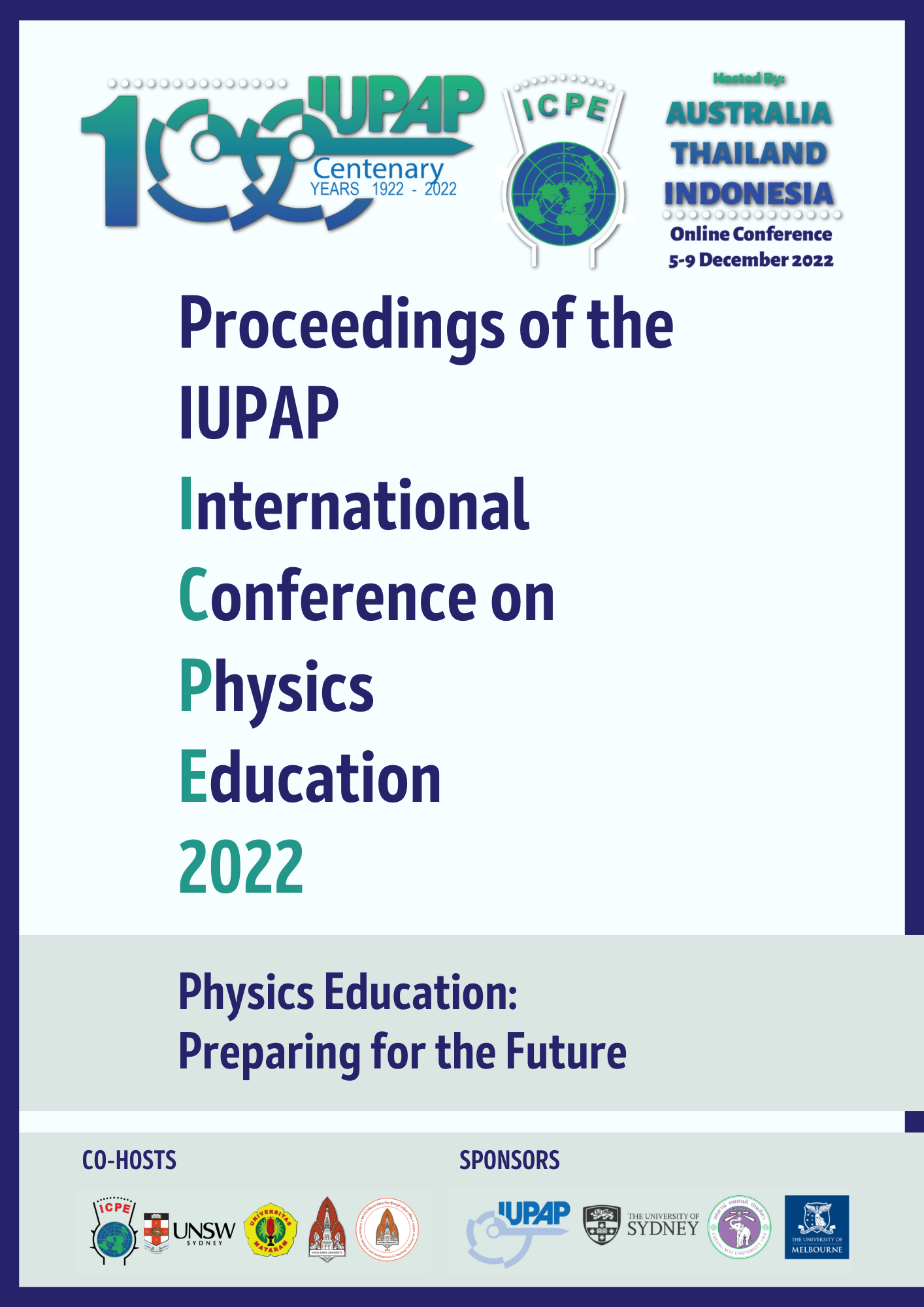Coleta Certa: Modern board game about radioactive waste
Keywords:
Physics Teaching, Radioactive Waste, Modern Board Game, STSAbstract
THE GAME AND TEACHING
With the objective of promoting teaching with greater participation of students in the teaching and learning process, associating school content with daily events of students, the modern board game Coleta Certa – like a correct waste collection - was created (Almeida & Vianna, 2022). This game simulates a deposit of radioactive rejects from different locations that use sources of nuclear radiation. The theme of the game provides knowledge about the various places that use radioactive elements and shows how waste that is contaminated in these places by radioisotopes must be treated so as not to contaminate the environment. Regarding the Physics content, the game aims to provide knowledge about the half-life for radioactive decay. The game aims to simulate reality by creating its own rules that are valid for the magic circle created to experience the game (Huizinga, 2019). According to this, it can be said that the game is an excellent tool to simulate a real problem and test possible solutions, developed by the students. In addition, when the Physics content is taught in a way linked to social problems, the content ends up helping not only in the students’ professional training, but also in their critical training, as they will relate the content to the world in which they live. This way of approaching the content is in line with teaching with a focus on Science, Technology and Society (STS) (Aikenhead, 2003). In 2019, this game was applied with a higher education class at the Federal University of Rio de Janeiro and, because the participants' speeches were recorded, it was possible to make an analysis and conclude that the students learned about radioisotope applications and about the half-life concept for radioactive decay (Almeida, 2021).
OBJECTIVES GAME AND MAIN RULES
The game Coleta Certa represents a radioactive rejects warehouse in a fictional city. Over time, the warehouse became very crowded and it was necessary to hire professionals who could monitor these tailings and verify which ones are no longer emitting radiation at a harmful level to the environment. From there, the players represent these professionals responsible for monitoring the deposit. The winner is the one who accumulates the most points at the end of competition, and these points are related to the right time to collect each waste. For the tailings classified by the players as ready to be collected before or after the right time, in the first case they lose a point, as the tailings still pose a danger, and in the second they gain nothing, as the tailings are taking up unnecessary space. The game allows participants to study the correct time through the half-life of radioisotopes, the initial activity and the exemption level for each waste. Therefore, during the game, everyone must find out the time required for the tailings to decrease the initial activity by an order of magnitude value of the exemption level, as a function of the half-life of the element (Almeida & Vianna, 2022).
REFERENCESAikenhead, G. (2003). STS Education: A rose by any other name. In: Cross, R. (Ed.): A Vision for science education: Responding to the work of Peter J. Fensham, p. 59-75. New York: Routledge Falmer.
Almeida, A. C. C. (2021). Jogo de tabuleiro Coleta Certa: Aplicação com alunos cursando o ensino superior. Proceedings of the National Meeting of Games and Ludic Activities in Chemistry, Physics and Biology Teaching. Rio de Janeiro, Brazil: Federal University of Rio de Janeiro.
Almeida, A. C. C., & Vianna, D. M. (2022). Coleta Certa: Jogo de tabuleiro moderno sobre rejeitos radioativos. Caminhos da educação matemática em revista (online), 12(1), 304-318.
Huizinga J. (2019). Homo Ludens: o jogo como elemento da cultura. São Paulo: Perspectiva.
Downloads
Published
Issue
Section
License
Authors who publish with the Proceedings of the International Conference on Physics Education 2022 agree to the following terms:
a) Authors retain copyright and grant the journal right of first publication with the work simultaneously licensed under a Creative Commons Attribution License (https://creativecommons.org/licenses/by/4.0/) that allows others to share the work with an acknowledgement of the work's authorship and initial publication in this journal.
b) Authors are able to enter into separate, additional contractual arrangements for the non-exclusive distribution of the journal's published version of the work (e.g., post it to an institutional repository or publish it in a book), with an acknowledgement of its initial publication in this journal.
c) Authors are permitted and encouraged to post their work online (e.g., in institutional repositories or on their website) prior to and during the submission process, as it can lead to productive exchanges, as well as earlier and greater citation of published work (See The Effect of Open Access - http://opcit.eprints.org/oacitation-biblio.html).
Privacy Statement The names and email addresses entered in the Proceedings of the International Conference on Physics Education 2022 site will be used exclusively for the stated purposes of this journal and will not be made available for any other purpose or to any other party.
